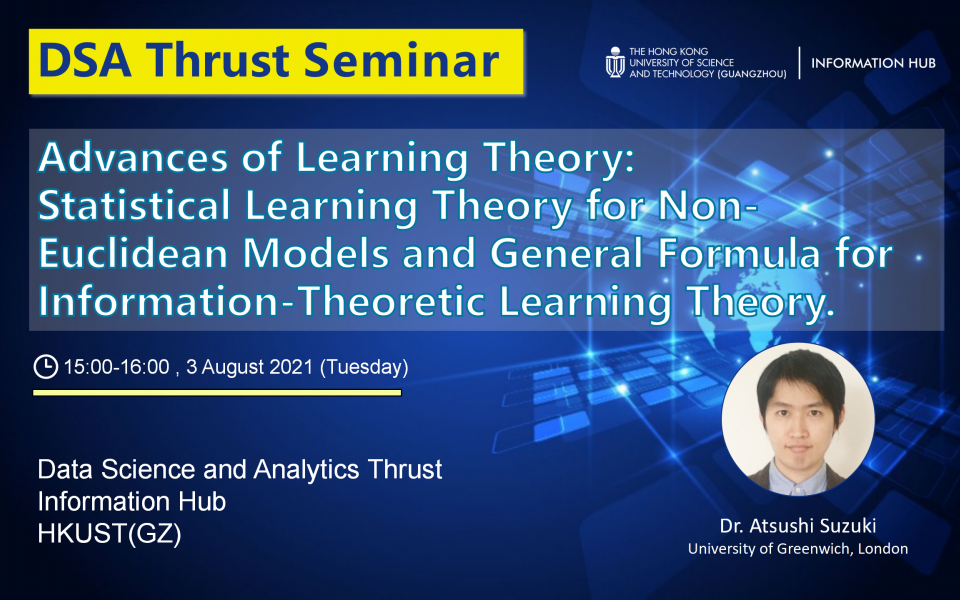DSA Thrust Seminar丨Advances of Learning Theory: Statistical Learning Theory for Non-Euclidean Models and General Formula for Information-Theoretic Learning Theory.
Supporting the below United Nations Sustainable Development Goals:支持以下聯合國可持續發展目標:支持以下联合国可持续发展目标:
Learning theory, which aims to evaluate the performance of machine learning models, is one of the mathematical foundations of machine learning. The evaluation should be conducted on the metric that is suitable for the problem objective. In supervised learning, since the objective is prediction, we use prediction performance as a metric, for which we can use statistical learning theory (SLT). However, previous evaluations by SLT could not apply to non-Euclidean models, which can effectively represent hierarchical data. To overcome this limitation, we have proposed a novel methodology to apply SLT for non-Euclidean models by SLT, clarifying where non-Euclidean models can outperform Euclidean ones. This work will be introduced in the first half of the talk. In unsupervised learning, since the objective is not specific as in supervised learning, we often evaluate a model by information-theoretical learning theory (ITLT) according to minimum description length principle, using a normalized maximum likelihood (NML) code length as a metric. While previous work has derived NML code length calculation formulae independently for a few models, they have not provided any general formula. We have derived a novel general formula of the NML code length, covering the whole exponential family. The formula also shows that the NML code length is directly related to Bayesian statistics through complex function theory. This work will be introduced in the second half of this talk.
Atsushi Suzuki is a Lecturer with the School of Computing and Mathematical Sciences, Faculty of Liberal Arts and Sciences, University of Greenwich, London, United Kingdom.
Atsushi's research interests include learning theory and optimization, their relation to information theory and geometry, and their application to machine learning.
Atsushi received the degree of Doctor of Information Science and Technology from the University of Tokyo, Tokyo, Japan, in 2020. Prior to this, Atsushi received the degrees of Master of Information Science and Technology and Bachelor of Engineering and from the University of Tokyo, in 2017 and 2015, respectively. Atsushi was awarded Research Fellowships for Young Scientists from Japan Society for the Promotion of Sciences from 2018 to 2020. Atsushi has published papers in top-leading academic journals and international conferences, including IEEE Trans. Inf. Theory, ICML, ISIT, AAAI, IJCAI, and ICDM.
